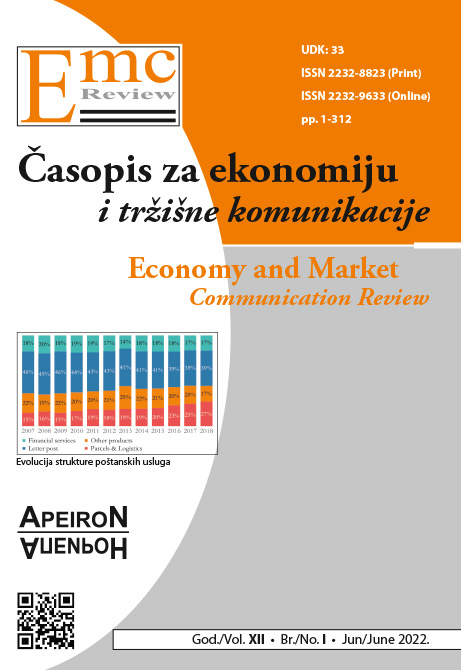EXPLORING THE EXTENSION OF CONSUMER ETHNOCENTRISM ON ETHNOCENTRIC BUSINESS ORIENTATION OF YOUNG ADULTS FROM TWO COUNTRIES
DOI:
https://doi.org/10.7251/EMC2201279CAbstract
Many consumer studies have confirmed that in different international settings ethnocentric consumers mostly prefer domestic products. Consequently, consumer ethnocentrism has been considered as a prominent informal barrier for international trade. Even though an ethnocentrism as a personal trait has been a subject of international management studies, ethnocentrism was rarely observed within a context of managers’ or owners’ decisions that affect business orientations. The purpose of this study was to explore a link among consumer ethnocentrism and ethnocentric business orientations of graduate students as future managers and business owners. The main goal was to and derive implications relevant for consumer and organizational marketing in international environment. The main motivation behind the study was to explore potential extension of consumer ethnocentrism on managerial ethnocentric decision making, and consequently, on ethnocentric business orientation. Research was conducted on a convenience sample of 219 business economics graduates from the University of Rijeka, Croatia and from the University of Mostar, Bosnia and Herzegovina. Multi-Group Structural Equation Modeling has been employed to explore a linkage among observed concepts. Empirical results indicated a differences among sub-samples from two countries in level of consumer ethnocentrism and its impacts on preferences towards domestic products. However, significant positive relation has been found between consumer ethnocentrism and ethnocentric business orientation in case of both observed groups. Consumer ethnocentrism has been confirmed as predictor of ethnocentric tendencies towards domestic products as well as predictor of ethnocentric business orientations of youth as a future managers and business owners. Research results confirmed that consumer ethnocentrism can be extended from consumer preferences and orientation towards domestic products to managers’ ethnocentric decision making, providing ethnocentric business orientation.
